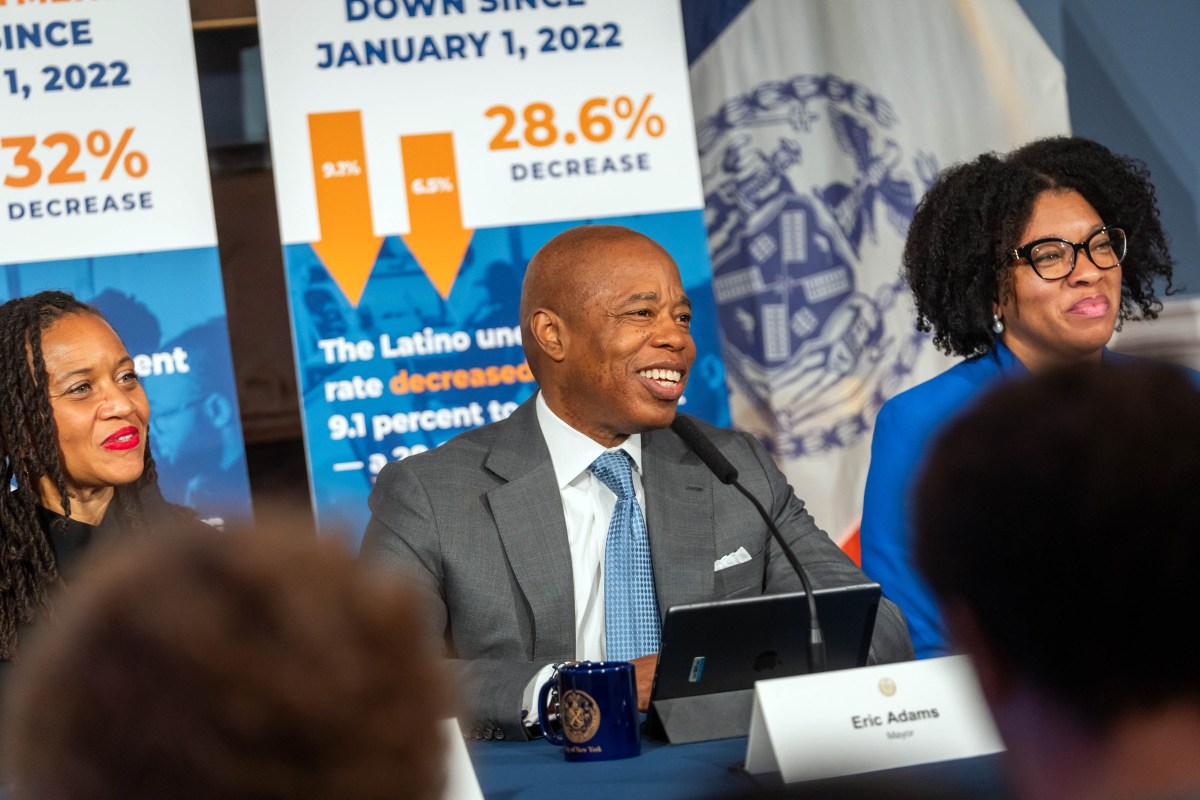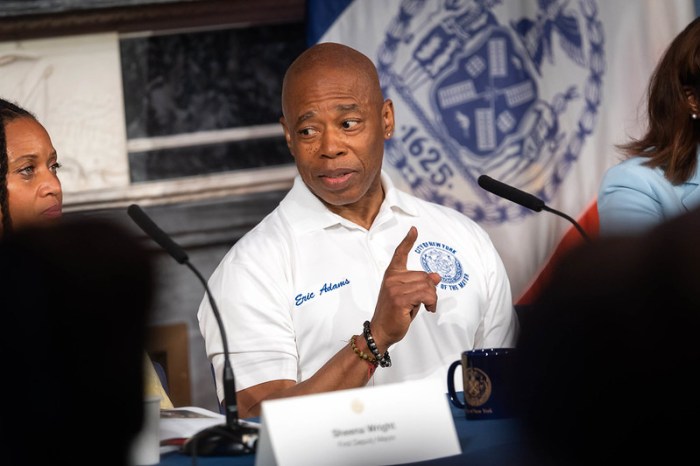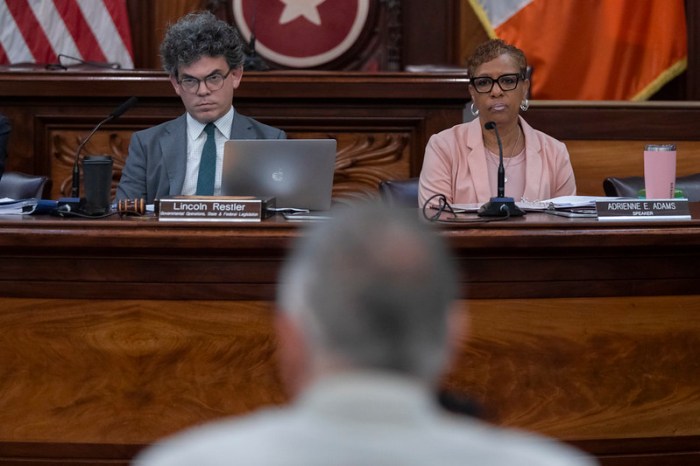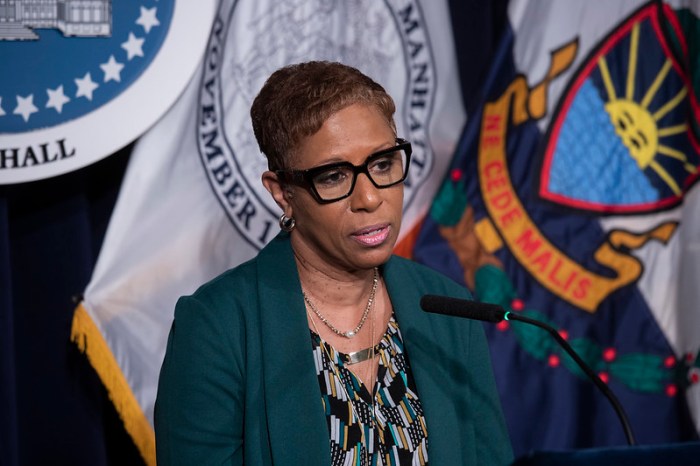Mayor Eric Adams’ City Charter Revision Commission on Tuesday unveiled proposals it intends to put before Big Apple voters this November, two of which would give City Hall far more say over how the City Council crafts legislation.
With the release of its final report on July 23, the commission is now one step closer to getting its proposals to appear before New Yorkers on the Nov. 5 general election ballot. If the commission’s items make it on the ballot, they will block a City Council bill designed to increase the body’s say over mayoral appointments — known as advice-and-consent — from coming before voters this fall.
The report contains proposals that would curb the council’s lawmaking power by allowing the price tag of its legislation to be assessed by the mayor’s office and by lengthening the process for passing any bill affecting public safety.
The other three proposals deal with giving the city Sanitation Department more authority; making the capital planning process more transparent; and further supporting minority- and women-owned businesses.
‘Sham’ of a plan: Council spox
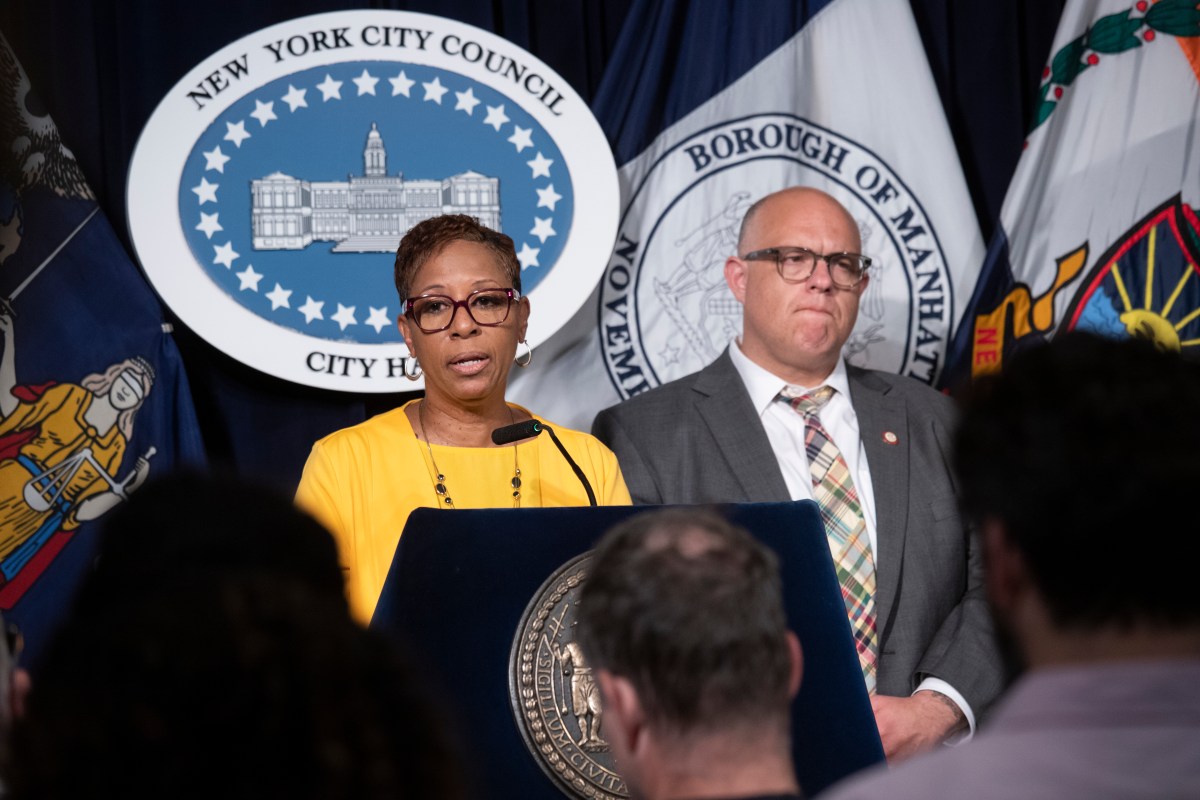
City Council spokesperson Julia Agos, in a statement, blasted the mayor’s commission as “a sham” simply designed to block the chamber’s advice-and-consent measure, which it passed last month and submitted to the city Board of Election to be placed on the ballot last week. She also took aim at the commission for releasing its report not even a day after its final public hearing in Queens on Monday.
“This Mayor’s sham Charter Revision Commission has done a disservice to New Yorkers by putting forward rushed proposals that block voters’ rights while undermining democracy and oversight of the Mayor’s administration,” Agos said. “This final report mirrors the commission’s rushed process with it issuing its final report less than 24 hours after this final hearing with hours of public testimony.”
Adams pushed back on the notion that the commission’s work had been rushed earlier Tuesday, instead slamming the council for introducing and passing its advice-and-consent measure within a relatively short timespan.
Agos also charged that the commission did not engage with the council even though two of its five proposals would significantly affect the city’s legislature.
“It has engaged in a legislative process and failed to meet even the most basic requirements for openness and transparency that would be a fraction of the Council’s process,” she said. “The Council urges this Commission and the Mayor’s Administration to avert this unnecessary and obvious disenfranchisement of voters. Let New Yorkers decide on the existing advice-and-consent ballot question this year instead of continuing with this undemocratic sham.”
How the commission started
Adams convened the panel in May, a move he says was a response to some community advocates’ concerns that the City Council passes too many pieces of legislation that bear a large price tag and adversely impact public safety. Many of the 13 members Adams appointed are his close political allies — including former Bronx Borough President Ruben Diaz Jr. and Dr. Hazel Dukes.
Council leadership, on the other hand, argues the commission is simply a bid to halt its advice-and-consent measure, which the mayor says could politicize the appointment process and slow down the wheels of government.
The commission’s proposals resulted from 12 public hearings it held across all five boroughs over the past two months. It is based on testimony from 240 people who spoke at the hearings and another 2,300, who submitted comments in writing.
Commission Chair Carlo Scissura, in a statement, lauded the panel’s work over the past two months.
“I look forward to our fellow New Yorkers flipping their ballot this November and making their voices heard once more on these significant issues,” Scissura said in a statement. “No commission can address every issue brought forward from the multitude of opinions we hear from the public, which is why final reports always include issues that require further study for potential consideration by future commissions.”
The panel must still approve the proposals via a vote during its final meeting, scheduled for 2 p.m. on Thursday.
What approval of proposals could mean for Council
Specifically, the proposal surrounding the cost of legislation would require a financial assessment of a bill earlier in the lawmaking process, on top of one that is already required before legislation is voted on. Additionally, it would permit that the mayor’s Office of Management and Budget to conduct its own estimates.
The proposal dealing with public safety would establish a different process with additional hurdles for council bills affecting the NYPD, Fire Department and Department of Corrections. Under the proposal, for any bills affecting those three agencies, the council would have to give 45 days notice of a public hearing on the measure, invite the commissioner of the affected agency to testify at the proceeding and allow for the mayor and commissioner of the agency to hold their own hearings over a 50-day period leading up to a vote.
Both proposals appear to be in direct response to legislation the council approved over the past year, which Adams fiercely opposed. That includes a package of laws expanding access to city-funded housing vouchers, and another requiring the NYPD to report on lower-level civilian encounters.
Mayor Adams has argued the former is too expensive and the latter is burdensome to the police and detrimental to public safety.



